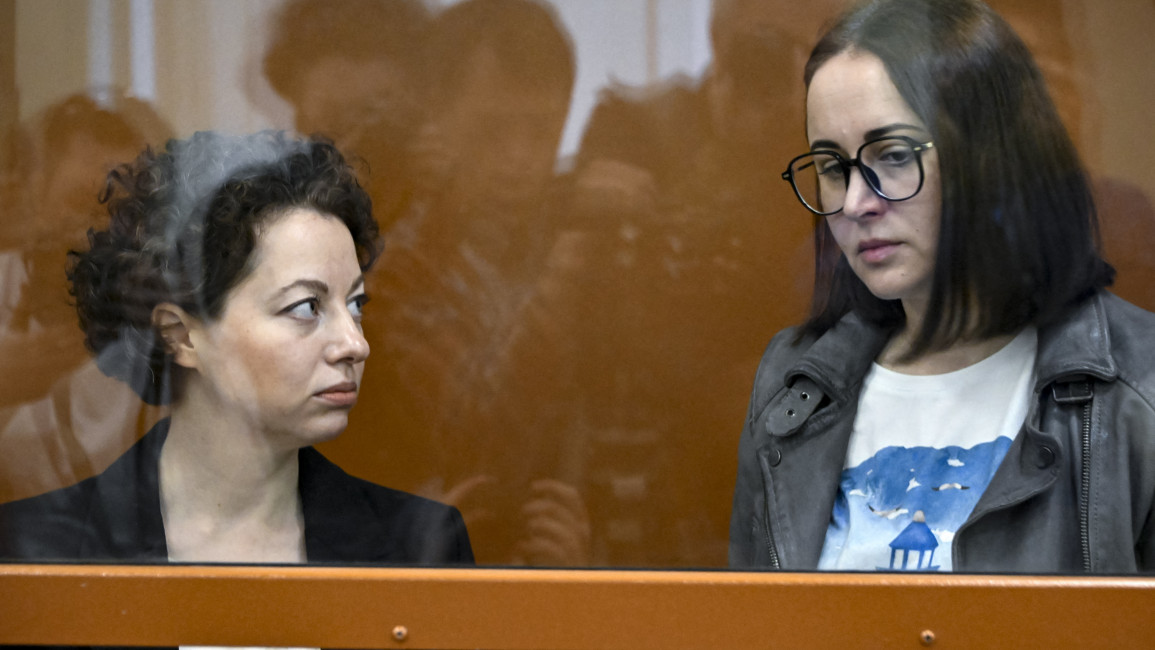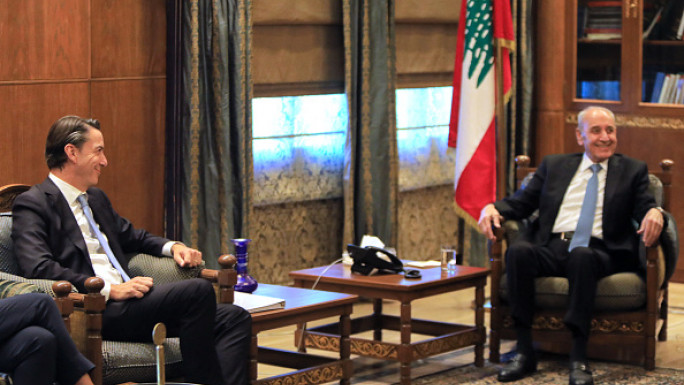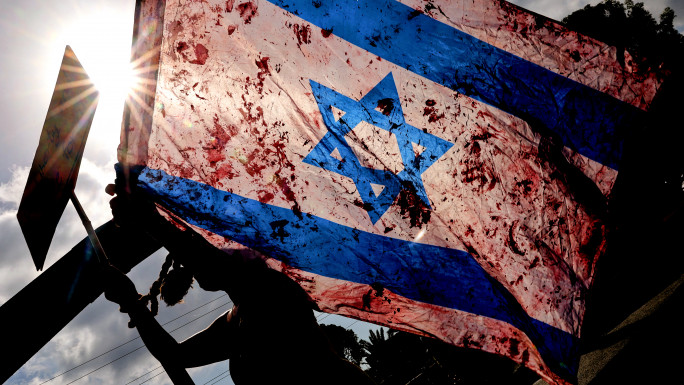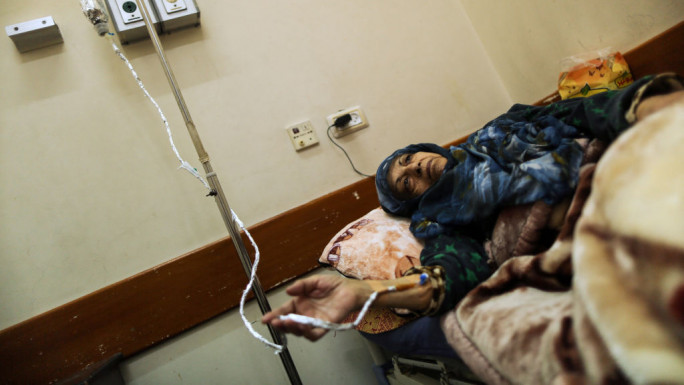Russian playwrights jailed over play about ISIS brides in Syria, spooks artistic community
Leading figures in Russian artistic and intellectual circles have expressed shock and dismay after a theatre director and playwright were jailed for six years on charges of "justifying terrorism".
Monday's verdict by a Moscow court against director Yevgenia Berkovich and playwright Svetlana Petriychuk, who maintained their innocence, had been all but certain as acquittal rates for serious crimes are near zero in Russia.
The pair were arrested in May last year for staging "Finist, the Brave Falcon", a play that borrowed elements from a classic fairy tale to tell the story of Russian women who are lured to Syria and marry Islamic State (ISIS) fighters.
Their conviction is widely seen as the first occasion in modern Russia that artists have gone to jail solely for their art rather than for an explicitly political stance.
Russian opposition figures said the court ruling represents a widening of a Kremlin crackdown on free expression and shows no one is safe from criminal prosecution.
"The criminal case against Yevgenia Berkovich and Svetlana Petriychuk will go down in Russian history as one of the most shameful and disgraceful", opposition politician Lev Shlosberg wrote on Telegram.
The pair's conviction, he said, was "a reminder of the complete defencelessness of art in a state without rights."
Asked by reporters about the court ruling, the Kremlin declined to comment.
Defence lawyer Kseniya Karpinskaya said she would appeal the guilty verdict and sentence following a six-week trial, but that she had "little hope."
Cultural figures flee abroad
Russian arts have been drained of much of their creative talent since the invasion of Ukraine in February 2022, after which many top writers, musicians and directors fled abroad.
Artists and human rights defenders inside and outside Russia have organised an open letter in support of Berkovich, 39, and Petriychuk, 44, that has garnered more than 16,000 signatures.
Supporters point out the irony that a play that won two of Russia's top theatre prizes at a festival supported, in part, by the culture ministry, is under fire from its justice system.
"They didn't do anything wrong," exiled Russian director Kirill Serebrennikov said at the Cannes Film festival in May. "They just staged a play that won a national theatre award."
Беркович и Петрийчук приговорили к реальному сроку, 6 годам, за спектакль. Абсолютно чудовищный срок. pic.twitter.com/qcJixhNjqM
— Соболь Любовь (@SobolLubov) July 8, 2024
Prosecutor Yekaterina Denisova argued that the women displayed positive opinions of ISIS and that the play did not sufficiently denounce radical Islamist ideologies.
Berkovich and Petriychuk said that while they had nothing against Islam, they were not Muslims and the play, whose main character is jailed for terrorism on her return to Russia, clearly condemned extremism.
"I staged the performance to prevent terrorism," Berkovich told the court at the start of the trial. She said she had "nothing but condemnation and disgust" for terrorists.
Weeks before the trial, Berkovich and Petriychuk were added to Russia's official list of "terrorists and extremists", joining thousands of people and entities similarly designated in a crackdown on perceived subversive activity that intensified after the invasion of Ukraine.
Authorities launched the case after a pro-Kremlin theatre actor - later a witness for the prosecution - denounced a staging of "Finist, the Brave Falcon" in his home city, Nizhny Novgorod, in social media posts.
The man, Vladimir Karpuk, said it was inappropriate to put on a play by an anti-war playwright following a Ukrainian attack on a bridge linking Russia and annexed Crimea.
Prominent journalist Ksenia Sobchak said it was a "disgrace" to Russia's justice system to jail artists whose work "in fact exposes this terrorism rather than justifies it."
"I am simply speechless," she said.
(Reuters)





 Follow the Middle East's top stories in English at The New Arab on Google News
Follow the Middle East's top stories in English at The New Arab on Google News
![John Thune [Getty]](/sites/default/files/styles/image_330x185/public/2066760536.jpeg?h=a5f2f23a&itok=DQxzSizV)
![A picture shows the occupied West Bank village of al-Eizariya behind Israel's Apartheid wall on the outskirts of East Jerusalem [Getty Images]](/sites/default/files/styles/image_330x185/public/2022-11/GettyImages-1200150515.jpg?h=eec5a94e&itok=Q0NIO_eW)
![The op-ed used spurious Biblical justifications to lay claim to the southern Lebanese city of Sidon [Getty]](/sites/default/files/styles/image_330x185/public/2024-11/GettyImages-149261870.jpg?h=69f2b9d0&itok=d2wjWSis)